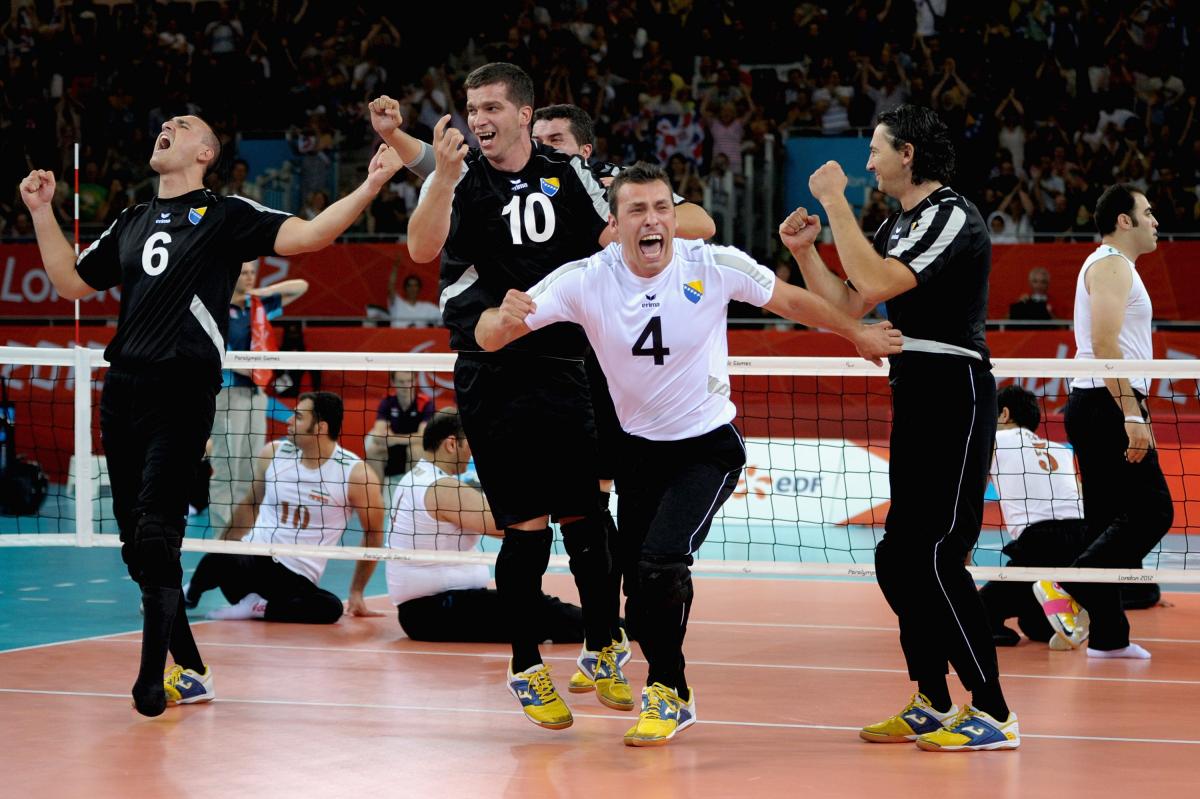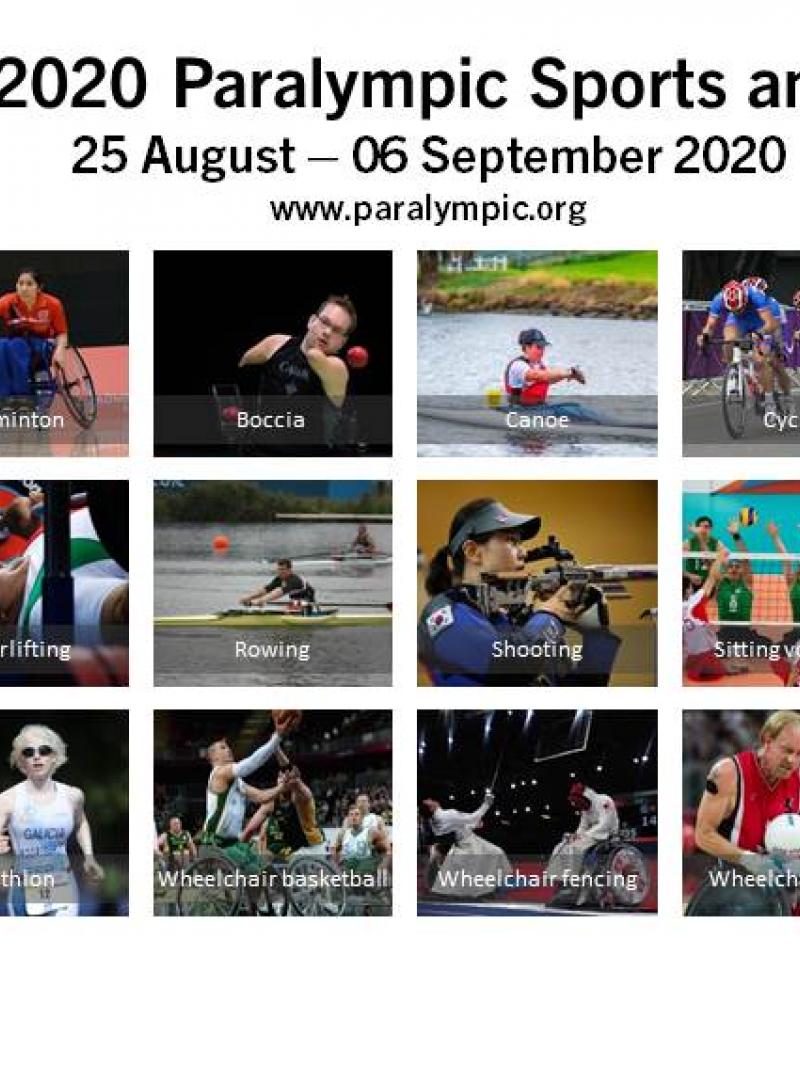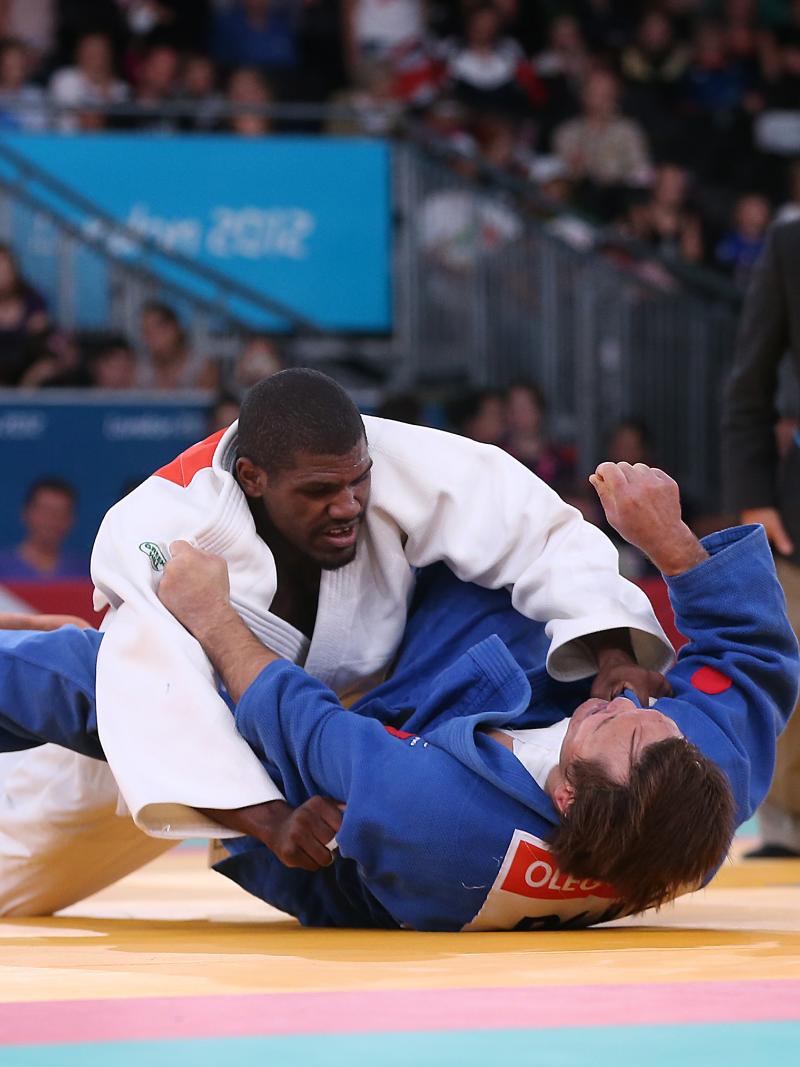Bosnia and Herzegovina target third sitting volleyball gold
Made up of players injured in war, the two-time Paralympic champions have become national heroes in their homeland 10 Mar 2015
Bosnia's men's sitting volleyball team celebrates after beating Iran for the gold medal at the London 2012 Paralympic Games.
“I am very grateful to the people who introduced me to sitting volleyball.”
In the summer of 1992, while the elite of global Paralympic sport were competing at the Barcelona Games, Bosnia and Herzegovina was going through the worst moment in its then brief history.
Involved in the most prolonged European war since World War Two, the country’s people could not have imagined that, a few years later, happiness would return thanks to some of those most affected by the conflict.
Two-time Paralympic champions, the Bosnia and Herzegovina men’s sitting volleyball team includes athletes who were deeply affected by the Bosnian War. Captain Sabahudin Delalic fought for the Bosnian army and lost part of his right leg after a wall fell on him. Safet Alibasic lost one of his legs when he stepped on a landmine. The manner in which they have overcome such challenges has made them heroes in their homeland.
The team’s story began in 1994, while the war was still under way. Due to the large number of people injured in the conflict, the country started to invest more in Paralympic sports.
“Starting off was hard,” said Alibasic. “I didn’t know about sitting volleyball before the war. I only started to play it after my accident and because I wouldn’t have many possibilities in other sports. I am very grateful to the people who introduced me to sitting volleyball.”
The team showed their spirit in the first competition they played in, the 1994 European Championship. They travelled to Croatia on a bus riddled with bullet holes in temperatures of 17 degrees below zero. Their 11th place finish was less important than all the support and affection they received.
“It was extremely hard to train every day, to sweat on the court and make all kinds of sacrifices while our country was experiencing the most difficult moments in its existence,” said Delalic. “Our people’s suffering strengthened our spirit and our character. We saw it as a challenge for Bosnia and it was key to the team’s success.”
In 1997, the team won their first European championship medal – a bronze – and two years later they won gold. They made their Paralympic Games debut at Sydney 2000 and won silver. In 2002 they reached the top of the podium at the World Championship and two years later, at the Athens 2004 Paralympic Games, they took gold. After another silver medal at the Beijing 2008 Paralympic Games, the team returned to the top of the podium at London 2012.
These four podium finishes in sitting volleyball represent Bosnia and Herzegovina’s only medals in Olympic and Paralympic Games, making the team a source of great pride for the country. “It’s a wonderful feeling,” said Delalic. “I think we represented a light at the end of the tunnel for the people of this country, who have suffered so much.”
Bosnia and Herzegovina won their second World Championships last year confirming their place at the Rio 2016 Paralympic Games in the process. Alibasic said they will come to Brazil with the highest expectations.
“We want to repeat what we achieved in London,” he said. “We saw the happiness that the country experienced when our football team qualified for the (football) World Cup for the first time, in 2014. When our national teams are successful, our people can forget all our problems for a while and spend a few days celebrating.”
Rio could be the stage for another memorable duel between Bosnia and Herzegovina their main rivals in sitting volleyball, Iran. Since the Bosnians brought an end to the Iranians’ series of four Paralympic golds at Athens 2004, the two teams have met in all the finals of the Paralympic Games and World Championships, except this year, when the Bosnians faced Brazil.
“For many years we played Iran in the finals of the most important competitions, but the 2014 World Championship showed that there are other high-quality teams, which can surprise, as Brazil did,” said Alibasic.
In addition to Bosnia and Herzegovina and Iran, who qualified in the World Championship, China, which guaranteed its place in the Asian Para Games, and host country Brazil, another four men’s teams will compete in the Rio 2016 Games. Three places will be determined by the European, American and African continental qualifiers in 2015, and the last one will be determined at the Pre-Paralympic World Championship in 2016.

 Facebook
Facebook
 Instagram
Instagram
 Twitter
Twitter
 Youtube
Youtube
 TikTok
TikTok
 Newsletter Subscribe
Newsletter Subscribe



